
Resources:
Watch the wrap-up video of the workshop highlights here: Wrap-Up Video
Proceedings: Link
The 2024 TVET Leadership Workshop on Digital Transformation, organized by the UNESCO Chair on Digitalization in TVET at Shenzhen Polytechnic University (SZPU) in collaboration with the UNESCO-UNEVOC International Centre for TVET and the UNESCO Multisectoral Regional Office for East Asia, successfully concluded this week. The workshop brought together 30 TVET leaders, government officials, and leaders or directors from universities and TVET institutions from 24 countries across the Asia-Pacific and Africa. It aimed to provide a capacity building platform to exchange knowledge, share innovative solutions, and build capacity in leading and promoting the digital transformation of TVET sector globally.
During the opening ceremony, Professor Yang Wenming, Coordinator of UNEVOC Centre and UNESCO Chair on Digitalization in TVET, and Ms. Zhong Zhuoya, Programme Specialist of the UNESCO Chair, introduced the Chair’s background, vision, rationales, and its six key projects. They emphasized the critical role of these projects in driving digital transformation in TVET worldwide, with a focus on knowledge creation, capacity-building, and international networking.
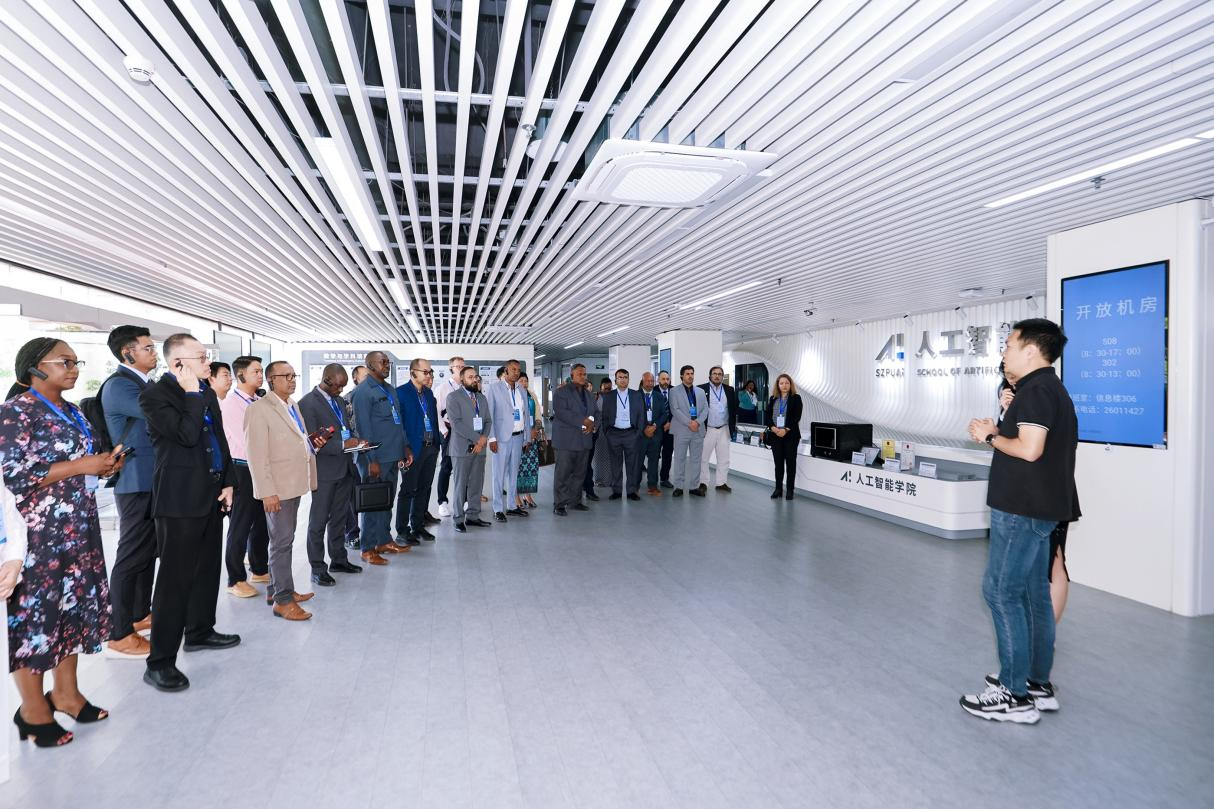
(Participants visiting the AI Laboratory at SZPU)
The workshop was structured into three modules focusing on distinct dimensions of TVET digital transformation. The first module, dedicated to developing emerging digital technology programmes, featured insights from Professor Chi Ruinan, Deputy Dean at SZPU’s School of Artificial Intelligence, and Professor Yi Haibo, Director of the Blockchain Programme. The session included a visit to SZPU’s AI laboratories, led by Mr. Wang Xiaolei, where participants observed practical applications of emerging technologies in AI-related skill training. The second module explored the digital transformation of traditional TVET programmes. Professor Cui Hongwei, Deputy Dean at the School of Automotive and Transportation Engineering, and Ms. Song Heran, Lecturer of New Energy Vehicle Technology, shared successful practices in innovating course content and instructional models by integrating digital tools to enhance student digital competencies and employability. The third module focused on EdTech, digital pedagogy, and digital infrastructure. Mr. Li Chunlin, Associate Professor at SZPU’s ICT Centre, presented the integration of EdTech tools and pedagogical shifts and the development of digital infrastructure at SZPU. Professor Li Zhi, Deputy Dean at the School of Digital Creation and Animation, demonstrated how digital twin technologies and digital avatars, in the ear of AIGC, enhance content development and learning experiences. The discussions underscored the potential of innovative digital solutions to strengthen TVET delivery.
The final day featured an interactive session where participants shared and exchanged insights on digital transformation in their respective contexts. This exchange facilitated a deeper understanding of shared challenges and opportunities, fostering collaboration and strengthening global partnerships in TVET.
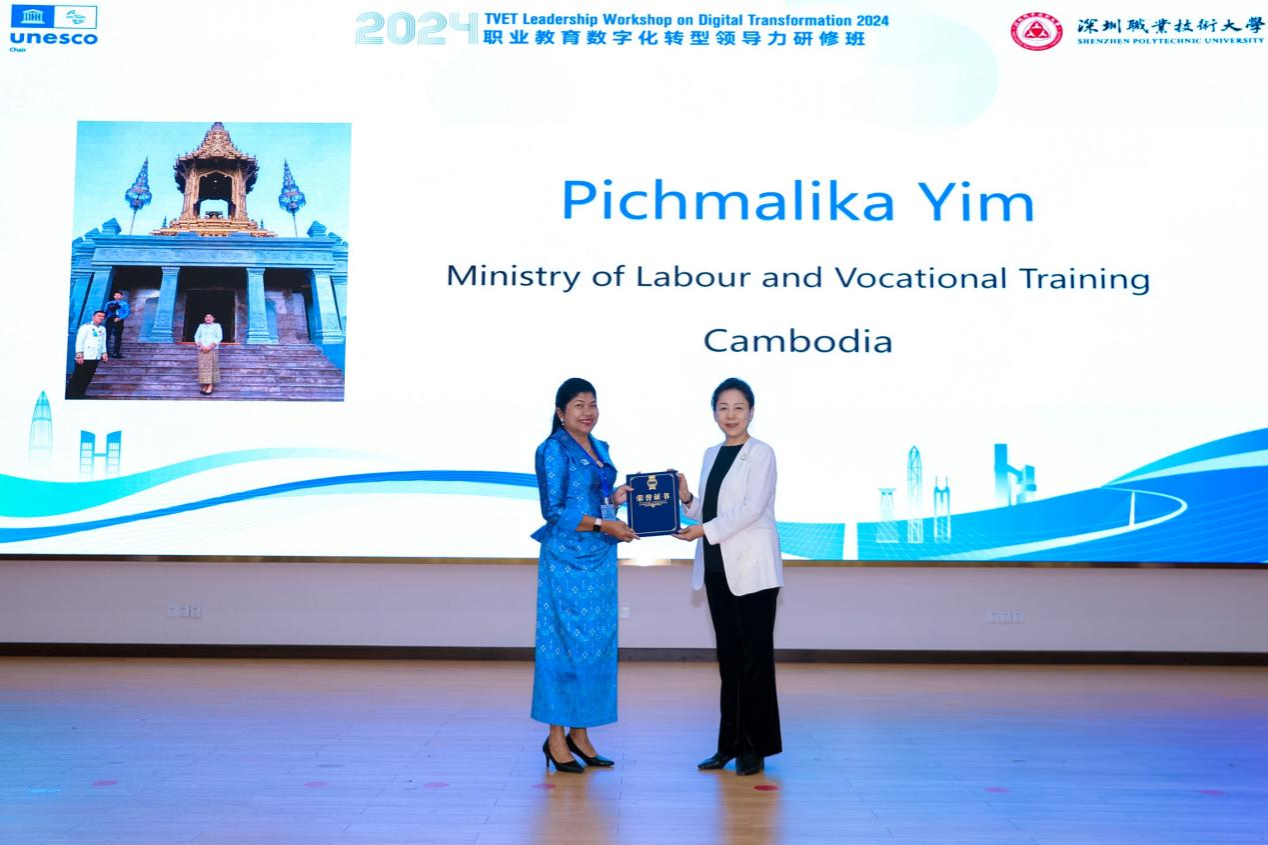
(Vice President Prof. Li Yue awarding certificates to participants)
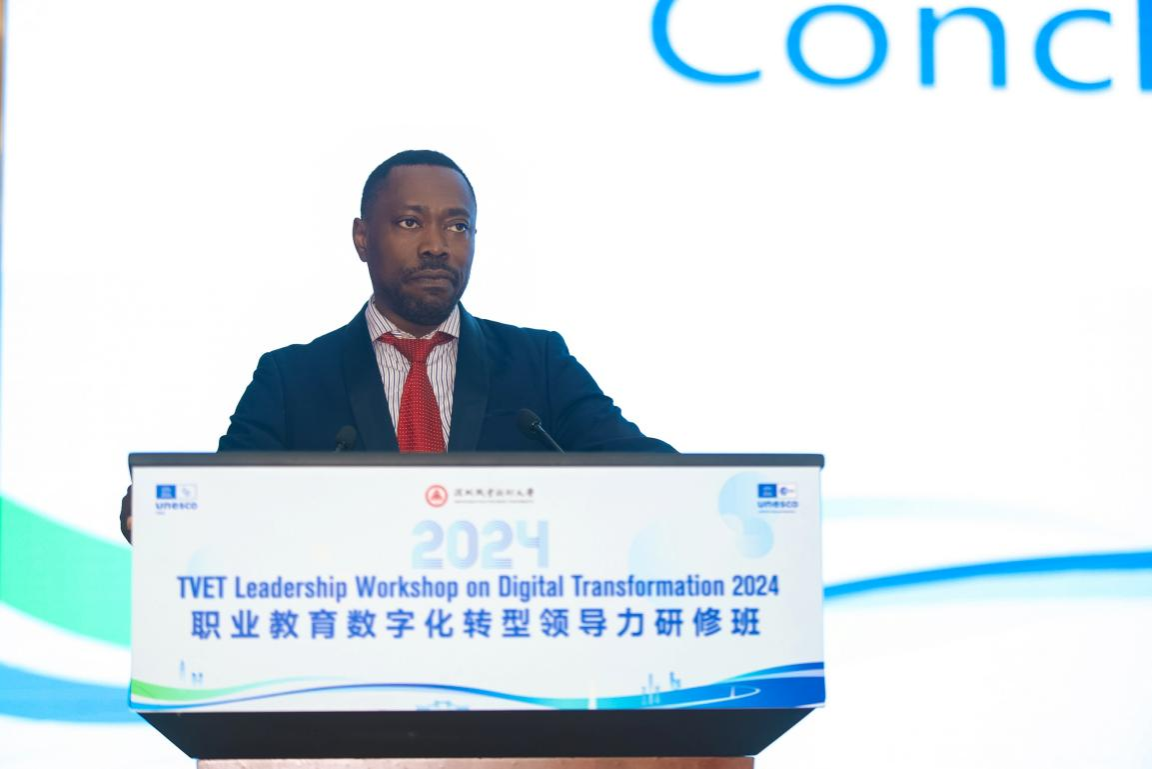
(Mr. Olivier Pieume, Head of Technical Cooperation at the UNESCO-UNEVOC International Centre, delivering concluding remarks)
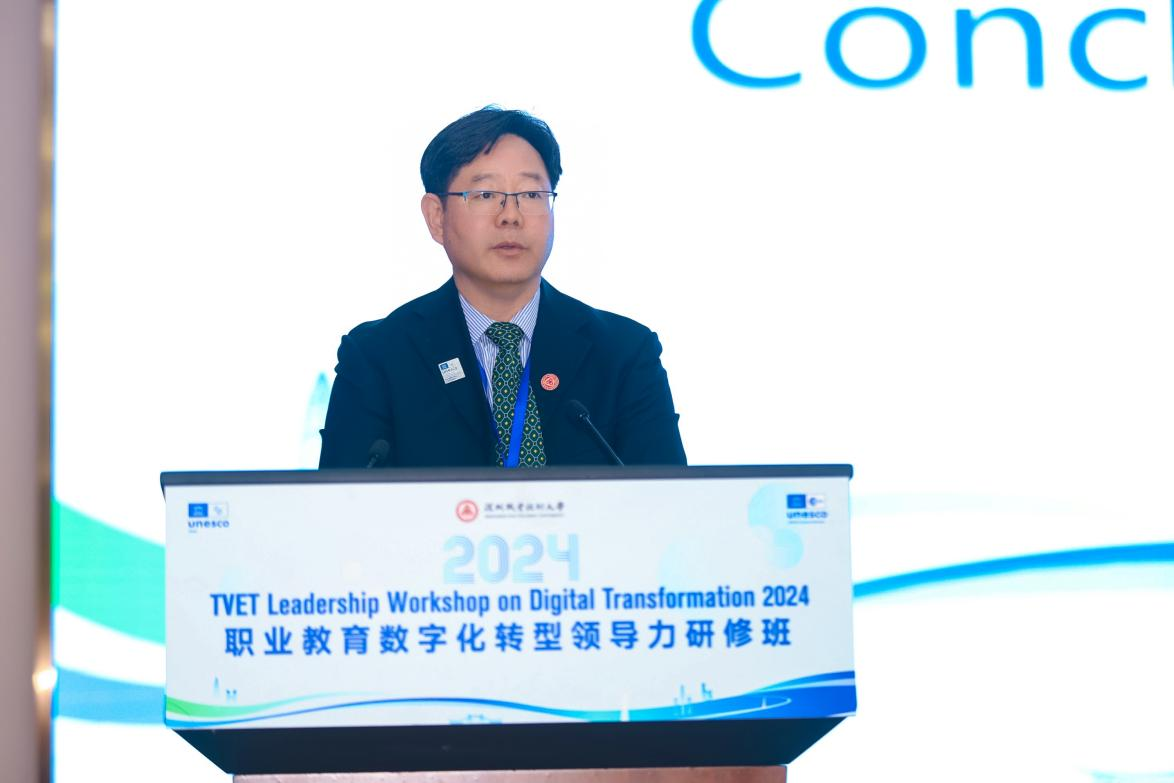
(Professor Yang Wenming, Coordinator of UNEVOC Centre and UNESCO Chair on Digitalization in TVET, delivering closing remarks)
During the closing ceremony, Prof. Li Yue, Vice President of SZPU, awarded certificates of participation. Mr. Olivier Pieume, representing UNEVOC, commended the workshop as a valuable forum for TVET leaders and policymakers to gain insights into cutting-edge practices and address the complexities of digital transformation. He highlighted SZPU’s role and reaffirmed UNESCO’s commitment to fostering innovation and collaboration in TVET. In his closing remarks, Professor Yang Wenming emphasized the collective goal of building leadership capacities to advance digital transformation. He reiterated the importance of leveraging the workshop as a platform for exchange and collaboration, promoting peer learning and sustainable progress in TVET sector worldwide.
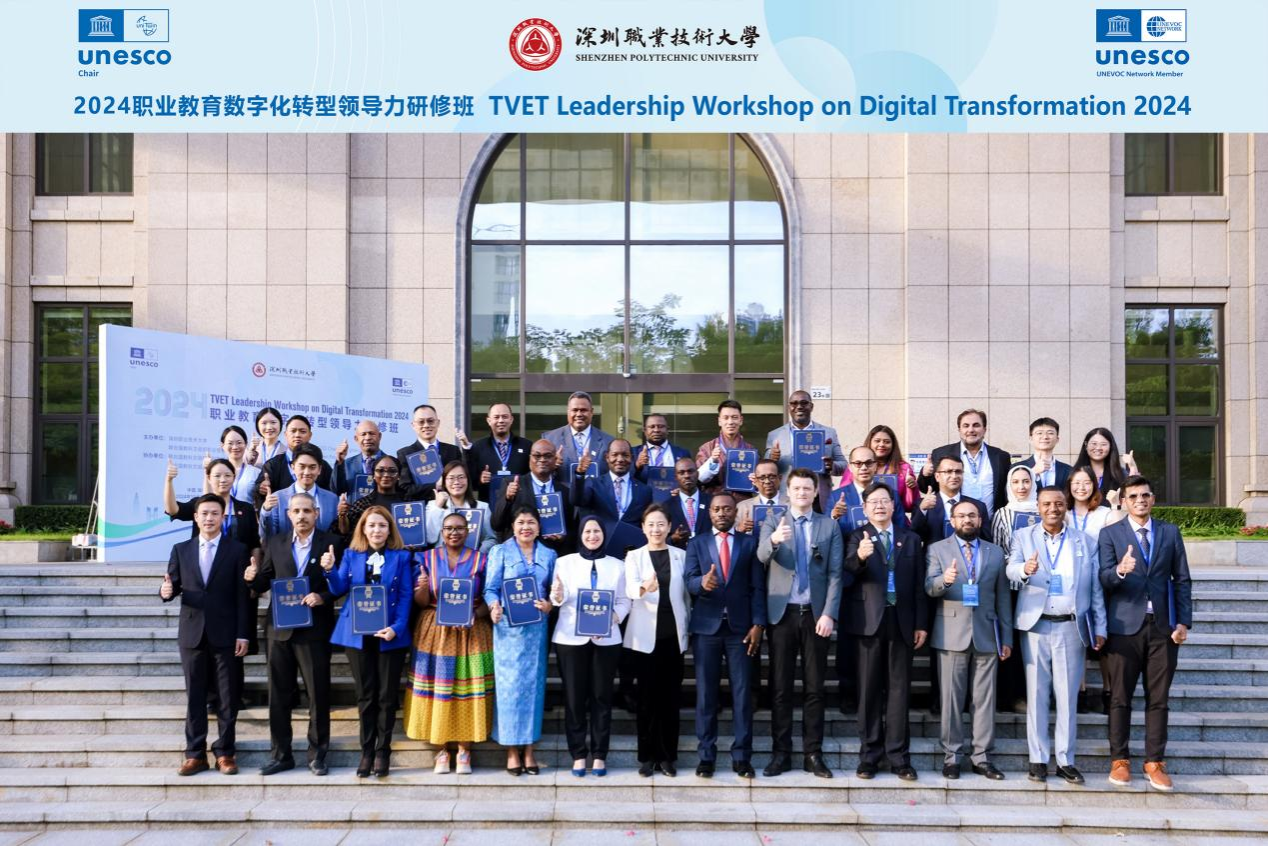
(Group photo at the closing ceremony)